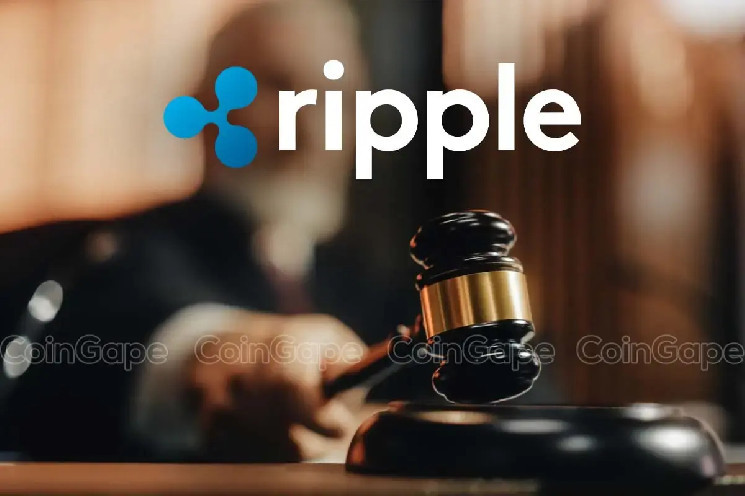The ongoing legal battle between Ripple Labs Inc. and the U.S. Securities and Exchange Commission (SEC) has witnessed a new development with Ripple’s submission of a "bill of costs" following a partial victory in the district court. This complex case, officially known as In re Ripple Labs Inc. Litigation, centers around the SEC’s allegation that Ripple’s sale of XRP, a digital asset, constituted an unregistered securities offering, violating U.S. securities laws. The recent filing pertains to the costs incurred by Ripple during the appeals process, signifying a new chapter in this protracted legal saga.
The core of the dispute revolves around the classification of XRP. The SEC argues that XRP meets the criteria of an "investment contract" under the Howey Test, a legal framework used to determine whether a transaction qualifies as a security. This test essentially examines whether there is an investment of money in a common enterprise with an expectation of profits derived primarily from the efforts of others. The SEC contends that Ripple’s marketing and distribution of XRP fostered such an expectation among investors, thus requiring registration under securities laws. Conversely, Ripple maintains that XRP is a digital currency, not a security, and its functionality lies outside the purview of securities regulations. They argue that XRP operates independently of Ripple’s managerial efforts and its value isn’t solely dependent on the company’s actions. This fundamental disagreement over XRP’s nature forms the crux of the lawsuit.
The district court’s partial ruling in favor of Ripple represented a significant milestone in the case. The court determined that programmatic sales of XRP on digital asset exchanges did not constitute unregistered securities offerings. This decision marked a substantial win for Ripple, challenging the SEC’s broad interpretation of securities laws in the context of digital assets. However, the court also ruled that institutional sales of XRP did qualify as securities offerings, offering a partial victory to the SEC. This nuanced decision highlighted the complexities of applying existing securities regulations to the rapidly evolving digital asset landscape, leaving both sides with grounds for further legal action. The ruling effectively bifurcated the case, acknowledging different legal implications for different types of XRP sales.
Ripple’s subsequent filing of a "bill of costs" pertains to the expenses incurred specifically during the appeals process. This procedural step allows the prevailing party in an appeal to recover certain costs associated with the legal proceedings. These costs typically include expenses related to filing fees, court transcripts, and other administrative charges. While the exact amount Ripple seeks to recover remains undisclosed, the filing signals the company’s intent to recoup some of the financial burden associated with defending itself against the SEC’s allegations. This move also underscores the significant financial stakes involved in this high-profile litigation, reflecting the broader legal and regulatory uncertainties surrounding the cryptocurrency industry.
The "bill of costs" filing is a distinct procedural step from the broader legal battle concerning the classification of XRP. While the district court’s ruling addressed the substantive issues of whether different types of XRP sales constituted securities offerings, the "bill of costs" focuses solely on the recovery of specific legal expenses. This distinction is crucial for understanding the current stage of the litigation. The underlying legal questions surrounding XRP’s status remain subject to ongoing debate and potential further appeals. The "bill of costs" filing does not directly impact the resolution of these fundamental issues, but rather represents a parallel procedural matter related to the financial consequences of the litigation.
The In re Ripple Labs Inc. Litigation has far-reaching implications for the cryptocurrency industry. The case’s outcome could significantly influence how securities laws are applied to digital assets in the future. The SEC’s aggressive pursuit of Ripple has sparked debate about the regulatory clarity and appropriate oversight of the evolving digital asset market. A broader interpretation of securities laws, as advocated by the SEC, could subject numerous digital assets to stricter regulatory scrutiny, potentially impacting their trading and development. Conversely, a narrower interpretation, aligning with Ripple’s arguments, could provide greater regulatory certainty for the industry and foster innovation in the digital asset space. The Ripple case serves as a critical test case, the outcome of which will likely shape the regulatory landscape for cryptocurrencies for years to come. As the legal proceedings continue, the industry watches closely, anticipating the precedent this case will set for the future of digital asset regulation.


